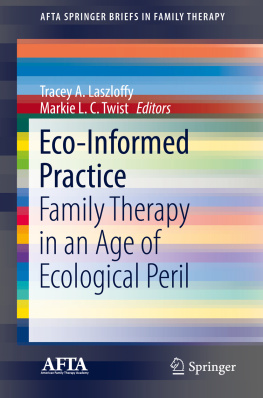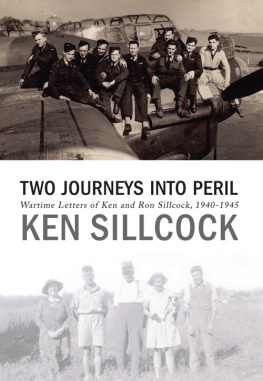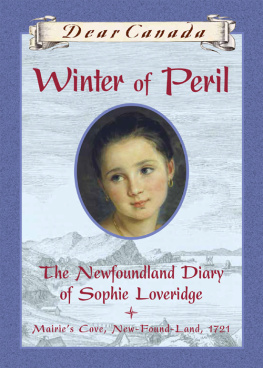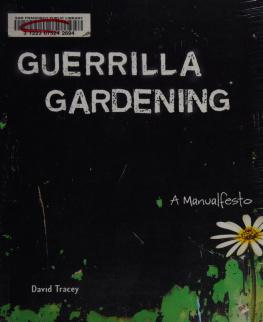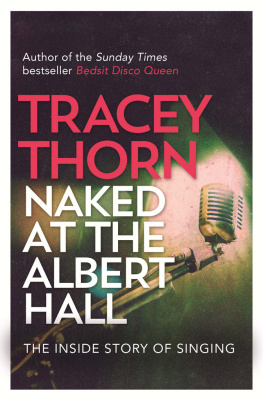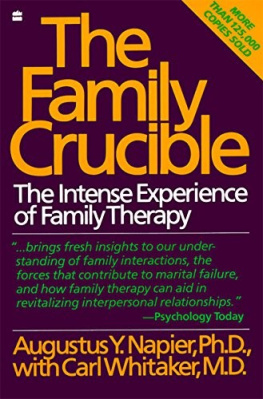Tracey A. Laszloffy - Family Therapy in an Age of Ecological Peril
Here you can read online Tracey A. Laszloffy - Family Therapy in an Age of Ecological Peril full text of the book (entire story) in english for free. Download pdf and epub, get meaning, cover and reviews about this ebook. year: 2019, publisher: Springer International Publishing, genre: Home and family. Description of the work, (preface) as well as reviews are available. Best literature library LitArk.com created for fans of good reading and offers a wide selection of genres:
Romance novel
Science fiction
Adventure
Detective
Science
History
Home and family
Prose
Art
Politics
Computer
Non-fiction
Religion
Business
Children
Humor
Choose a favorite category and find really read worthwhile books. Enjoy immersion in the world of imagination, feel the emotions of the characters or learn something new for yourself, make an fascinating discovery.
- Book:Family Therapy in an Age of Ecological Peril
- Author:
- Publisher:Springer International Publishing
- Genre:
- Year:2019
- Rating:5 / 5
- Favourites:Add to favourites
- Your mark:
- 100
- 1
- 2
- 3
- 4
- 5
Family Therapy in an Age of Ecological Peril: summary, description and annotation
We offer to read an annotation, description, summary or preface (depends on what the author of the book "Family Therapy in an Age of Ecological Peril" wrote himself). If you haven't found the necessary information about the book — write in the comments, we will try to find it.
Family Therapy in an Age of Ecological Peril — read online for free the complete book (whole text) full work
Below is the text of the book, divided by pages. System saving the place of the last page read, allows you to conveniently read the book "Family Therapy in an Age of Ecological Peril" online for free, without having to search again every time where you left off. Put a bookmark, and you can go to the page where you finished reading at any time.
Font size:
Interval:
Bookmark:
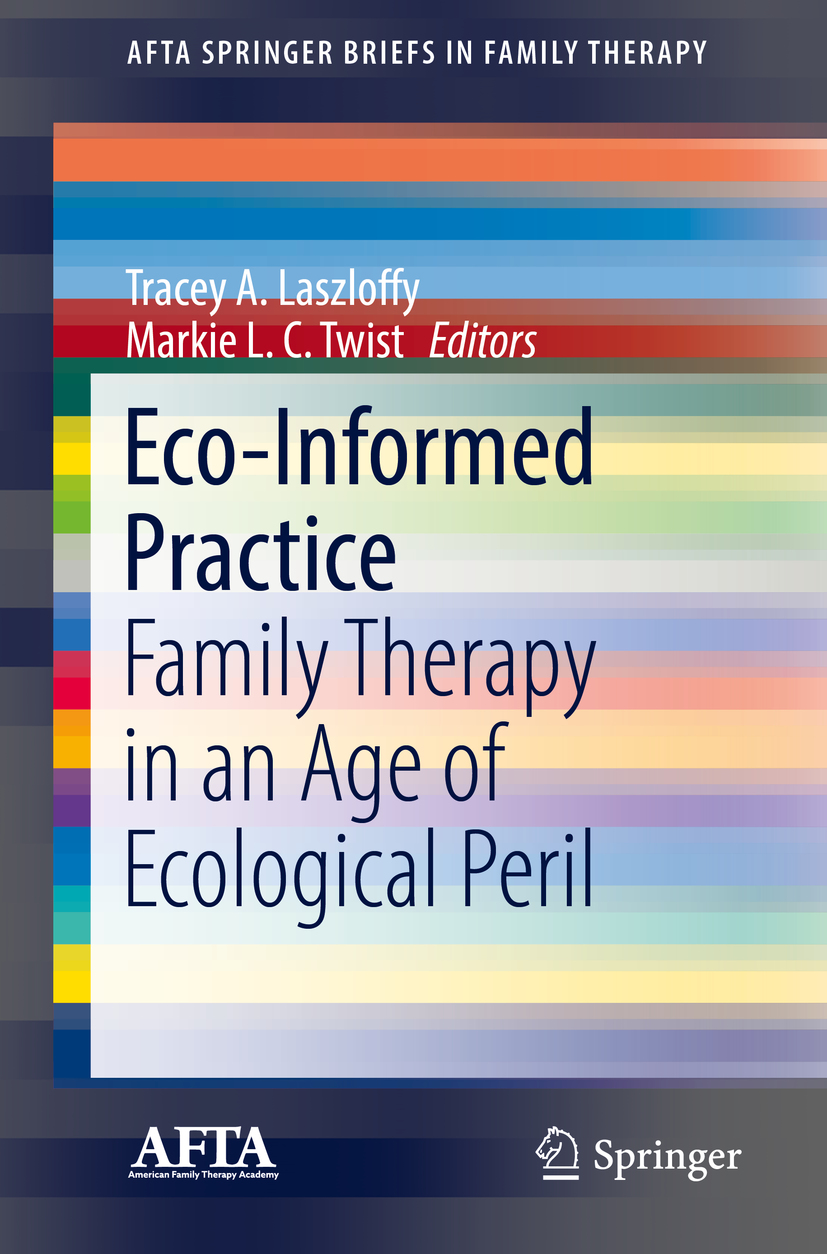
A Publication of the American Family Therapy Academy
Founded in 1977, the American Family Therapy Academy is a non-profit organization of leading family therapy teachers, clinicians, program directors, policymakers, researchers, and social scientists dedicated to advancing systemic thinking and practices for families in their social context.
Vision
AFTA envisions a just world by transforming social contexts that promote health, safety, and well-being of all families and communities.
Mission
AFTAs mission is developing, researching, teaching, and disseminating progressive, just family therapy and family-centered practices and policies.
More information about this series at http://www.springer.com/series/11846
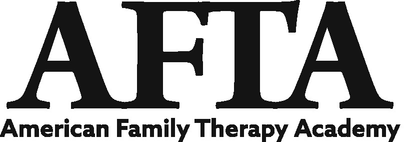

This Springer imprint is published by the registered company Springer Nature Switzerland AG
The registered company address is: Gewerbestrasse 11, 6330 Cham, Switzerland
In every walk with nature one receives far more than he seeks.
John Muir (2015)
With gratitude:For my family, who taught me to love and respect the Earth and all of her beings.
Tracey A. Laszloffy
For my familial mentor into care ethics for the earth, my grandfather, Dell Chandler Dodge, and my professional mentor into care ethics for her people, my advisor, supervisor, professor, and mentor, Dr. W. Harper Gaushell
Markie L. C. Twist
The AFTA Springer Briefs in Family Therapy is an official publication of the American Family Therapy Academy. Each volume focuses on the practice and policy implications of innovative systemic research and theory in family therapy and allied fields. Our goal is to make information about families and systemic practices in societal contexts widely accessible in a reader friendly, conversational, and practical style. AFTAs core commitments to equality, social responsibility, and justice are represented in each volume.
Eco-Informed Practice: Family Therapy in an Age of Ecological Peril is a call to action. Editors Tracey Laszloffy and Markie Twist and chapter authors challenge family therapists to take the systemic roots of our field seriously that fully addressing client issues requires placing them in context of our relationship with the ecological world in which we live. The book identifies how modern life and dominant ways of thinking promote disconnection from the natural environment and details the reciprocal effects on both human well-being and the environment and makes the case that ecological issues are also social justice issues and linked to other forms of oppression.
Fortunately, the authors do not simply raise the problem. The authors help readers see how they can incorporate attention to the natural environment in case assessment and offer practical suggestions for interventions and activities at the clinical level, as well as individual and collective advocacy at personal and professional levels. I am left with many ideas for how I can make my teaching and practice more eco-informed.
We would like to thank all of the people who helped see this work to fruition. This includes our appreciation and thanks to the person responsible for pushing this publication forward, Dr. Carmen Knudson-Martin of the American Family Therapy Academy. Carmen has been exceptional at guiding our edits, giving us feedback, and offering suggestions and direction and most importantly in her unwavering support and encouragement. Our thanks also go to our editor, Jennifer Hadley, at Springer. Overall, we are thankful to all at Springer who worked on this book to make our vision become a reality.
We also could not have completed this book without the efforts of the authors who contributed to this edited volume; this includes Chris Blankenship, Deanne Carvahlo, Stephen Fife, Sarah Hechter, Pilar Hernandez-Wolfe, Katherine Hertlein, Amanda Korbar, Daniela Leon, Jason Platt, and Shannon Yuen. We also extend our specific thanks to the people who contributed earlier pieces to this edited work that we were not able to find a space for in the final volume, namely, Melissa K. Bergdall, Anthony Santiago, Nels Paulson, and Amber Georgakopoulos. Our thanks to all of you for your time, support, and encouragement.
I (MLCT) also want to professionally and personally thank my coauthor Tracey A. Laszloffy (TAL). I have learned so much from you, Tracey, through your revolutionary work in the practicing and writing of eco-informed family therapy and well before this in your groundbreaking work around social justice practices that has permeated our field for years. I have been and remain honored to have been a part of this work with you, which I believe will benefit our colleagues, students, clinical participants, and human beings alike long after its publication.
I (TAL) want to thank my parents, June and Jerome Laszloffy, who taught me to love the earth and all animals, human and nonhuman alike; my sister, Joyce Laszloffy, who was my partner in exploring nature as children and supporting our love of the earth throughout our lives; and my partner Bill, who taught me how to heighten the pleasure of my time spent outdoors by embracing present moment living.
Font size:
Interval:
Bookmark:
Similar books «Family Therapy in an Age of Ecological Peril»
Look at similar books to Family Therapy in an Age of Ecological Peril. We have selected literature similar in name and meaning in the hope of providing readers with more options to find new, interesting, not yet read works.
Discussion, reviews of the book Family Therapy in an Age of Ecological Peril and just readers' own opinions. Leave your comments, write what you think about the work, its meaning or the main characters. Specify what exactly you liked and what you didn't like, and why you think so.

